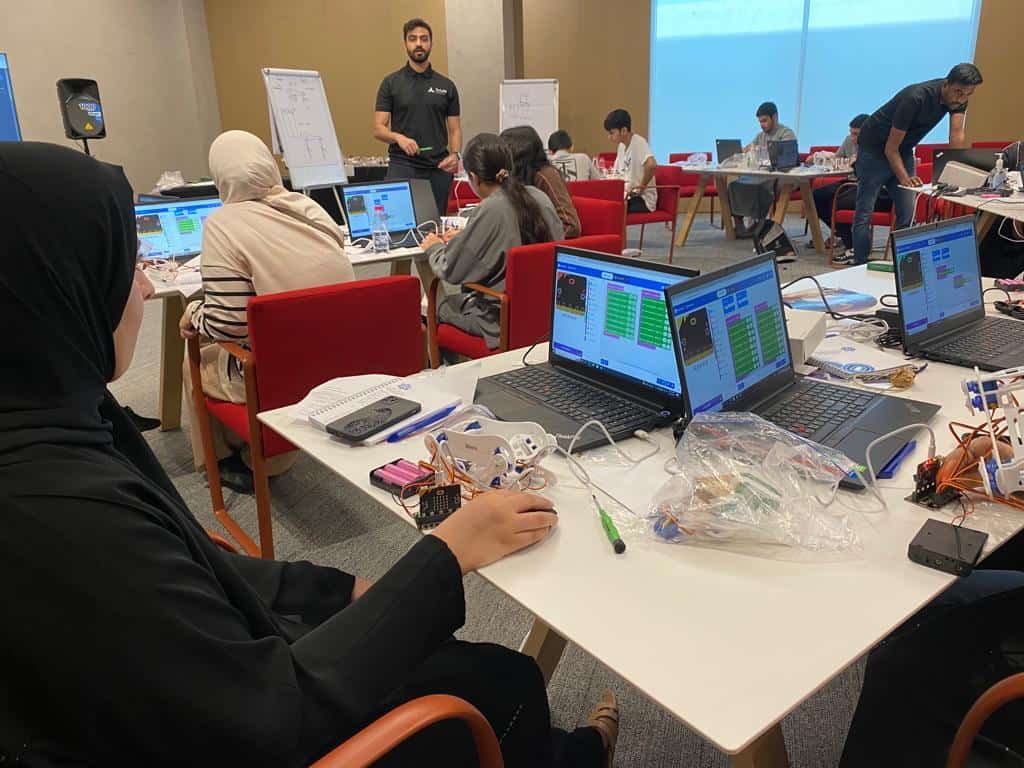DUBAI, UAE — Seven industries – advanced manufacturing services (AMS), retail, banking, energy, healthcare, consumer products, and automotive – are poised to benefit from sustainable innovation across the Middle East, says the latest Bain & Company report.
3-D printing
The construction sector contributes a chunk of energy-related CO2 emissions. However, 3-D printing’s latest advances in printing new materials, including cement and metals, and in printing larger objects can reduce the use of natural resources in the sector, while increasing efficiency. Construction 3-D printing allows faster and more accurate building of complex or bespoke items. Companies that use 3-D printing to lower costs can save up to 15 percent of the typical cost of a project.
AI monitored retail emissions
A large amount of retail emissions are Scope 3 indirect emissions in their supply chain, making the industry one of the leading emitters in this class. While Scope 1 covers the direct emissions from sources owned by a company, and Scope 2 focuses on the emissions from the electricity and heating or cooling sources they buy, scope 3 is particularly complex to manage since it involves a system, much of which is beyond the retailer’s direct control. Technologies including artificial intelligence (AI) can help monitor the system’s carbon footprint, forecasting and reducing emissions by optimizing internal operations and those of external partners.
Green banking products and services
As the rise of fintech confirmed, banks are always competing with digital natives. While banks have a relatively small direct environmental footprint, they greatly influence how companies and consumers act, invest, and address their environmental obligations through their loan portfolios and product offerings.
Among consumers, the market for green products is growing quickly, and that means an enormous financing opportunity exists for lenders. Increasingly, regulators are also requiring banks to measure and disclose their environmental impact, a task sometimes made difficult by limited access to reliable portfolio data and consistent standards of measurement.
Established banks are sponsoring decarbonization projects and offering services for cutting emissions. Startups are pushing into new sustainability-focused products and solutions, including green investment strategies, transaction-based carbon offsetting, and the allocation of profits to compensation projects.
Decarbonization of energy industry
Expanding government interventions, incentives, and subsidies, coupled with changing customer, investor, and employee expectations, have leading energy companies reinventing and diversifying to lower the amount of “human-made” greenhouse gas emissions. Digitalization is creating new opportunities for partnerships and innovative business models, but companies must balance several other critical issues too, including energy affordability, energy security, and expected return on investment.
One aspect of energy giants’ multifaceted approach is the creation of corporate venture capital funds to access new energy technology.
Tackling plastic waste in healthcare industry
More than half of all plastic ever produced has become waste, and its production has a significant greenhouse gas footprint. A substantial portion of the world’s plastic waste comes from healthcare, the majority associated with lifesaving medicine and procedures. Recently the World Health Organization estimated that the critical products needed to manage global pandemic included 87,000 metric tons of personal protective equipment and 144,000 metric tons of syringes, needles, and other vaccine waste, as well as the chemical and plastic waste from more than 140 million test kits.
A systemic change toward a circular economy could help reduce waste without compromising care.
Food consumption and production habits
The global food system is incredibly successful, feeding 7.9 billion people and generating a third of global GDP. But at the same time, it places a hefty burden on the environment, creating more than a quarter of all greenhouse gas emissions and contributing to deforestation and species extinction.
New approaches to agriculture and eating, including vertical farming and lab-grown meat, can reduce the amount of water and land required to produce the same or greater amounts of food. This decreases the need for long-haul transportation, chemicals, and pesticides. Cultured meat, requiring less energy and water than traditionally farmed meats, and creates significantly fewer emissions.
Air mobility
Cities consume most of the world’s energy supply and highway vehicles release billions of tons of greenhouse gases into the atmosphere each year. Urban air mobility (UAM), transporting both goods and people and powered by drones, could decongest cities, reduce noise pollution, and help to decarbonize the energy sector. New technologies, such as electric propulsion and enhanced battery capacity, applied to vertical takeoff and landing systems make this technically possible.








